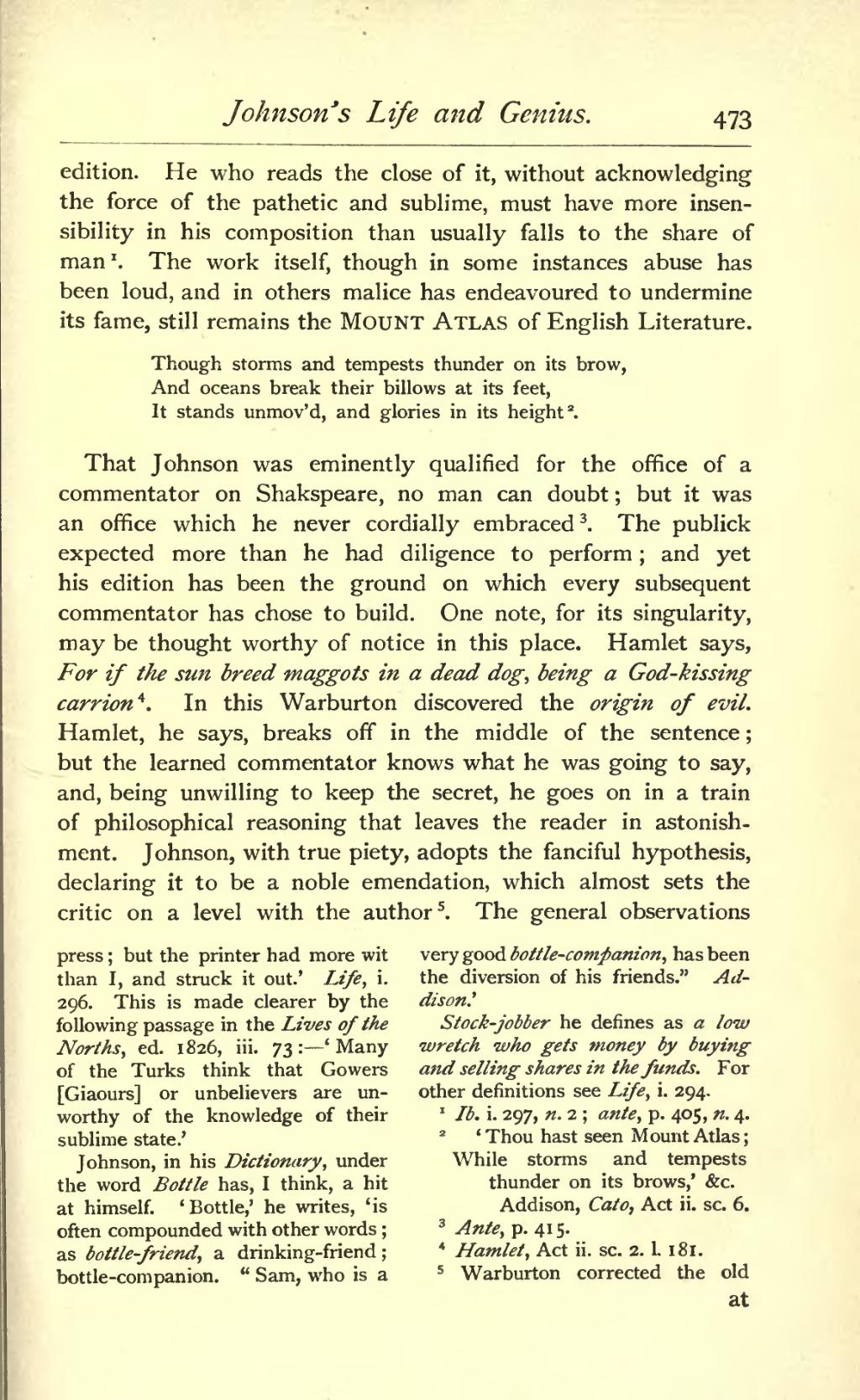edition. He who reads the close of it, without acknowledging the force of the pathetic and sublime, must have more insen sibility in his composition than usually falls to the share of man 1 . The work itself, though in some instances abuse has been loud, and in others malice has endeavoured to undermine its fame, still remains the MOUNT ATLAS of English Literature.
Though storms and tempests thunder on its brow, And oceans break their billows at its feet, It stands unmov'd, and glories in its height 2 .
That Johnson was eminently qualified for the office of a commentator on Shakspeare, no man can doubt ; but it was an office which he never cordially embraced 3 . The publick expected more than he had diligence to perform ; and yet his edition has been the ground on which every subsequent commentator has chose to build. One note, for its singularity, may be thought worthy of notice in this place. Hamlet says, For if the sun breed maggots in a dead dog, being a God-kissing carrion*. In this Warburton discovered the origin of evil. Hamlet, he says, breaks off in the middle of the sentence ; but the learned commentator knows what he was going to say, and, being unwilling to keep the secret, he goes on in a train of philosophical reasoning that leaves the reader in astonish, ment. Johnson, with true piety, adopts the fanciful hypothesis, declaring it to be a noble emendation, which almost sets the critic on a level with the author 5 . The general observations
press; but the printer had more wit very good bottle-companion, has been
than I, and struck it out.' Life, i. the diversion of his friends." Ad-
296. This is made clearer by the dison?
following passage in the Lives of the Stock-jobber he defines as a low
Norths, ed. 1826, iii. 73 : ' Many wretch who gets money by buying
of the Turks think that Cowers and selling shares in the funds. For
[Giaours] or unbelievers are un- other definitions see Life, i. 294.
worthy of the knowledge of their x Ib. i. 297, n. 2 ; ante, p. 405, n. 4.
sublime state.' 2 ' Thou hast seen Mount Atlas ;
Johnson, in his Dictionary, under While storms and tempests
the word Bottle has, I think, a hit thunder on its brows,' &c.
at himself. 'Bottle,' he writes, 'is Addison, Cato, Act ii. sc. 6.
often compounded with other words ; 3 Ante, p. 41 5.
as bottle-friend, a drinking-friend ; 4 Hamlet, Act ii. sc. 2. 1. 181.
bottle-companion. " Sam, who is a 5 Warburton corrected the old
at
�� �
